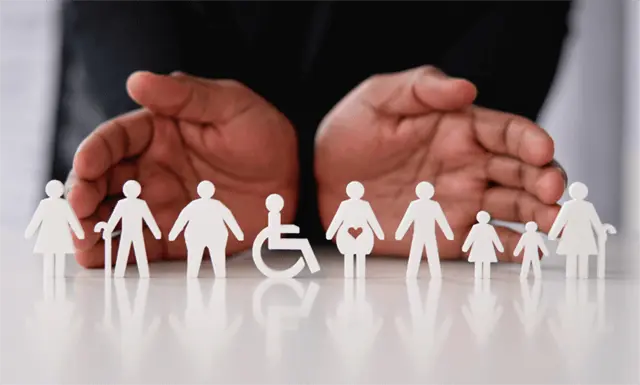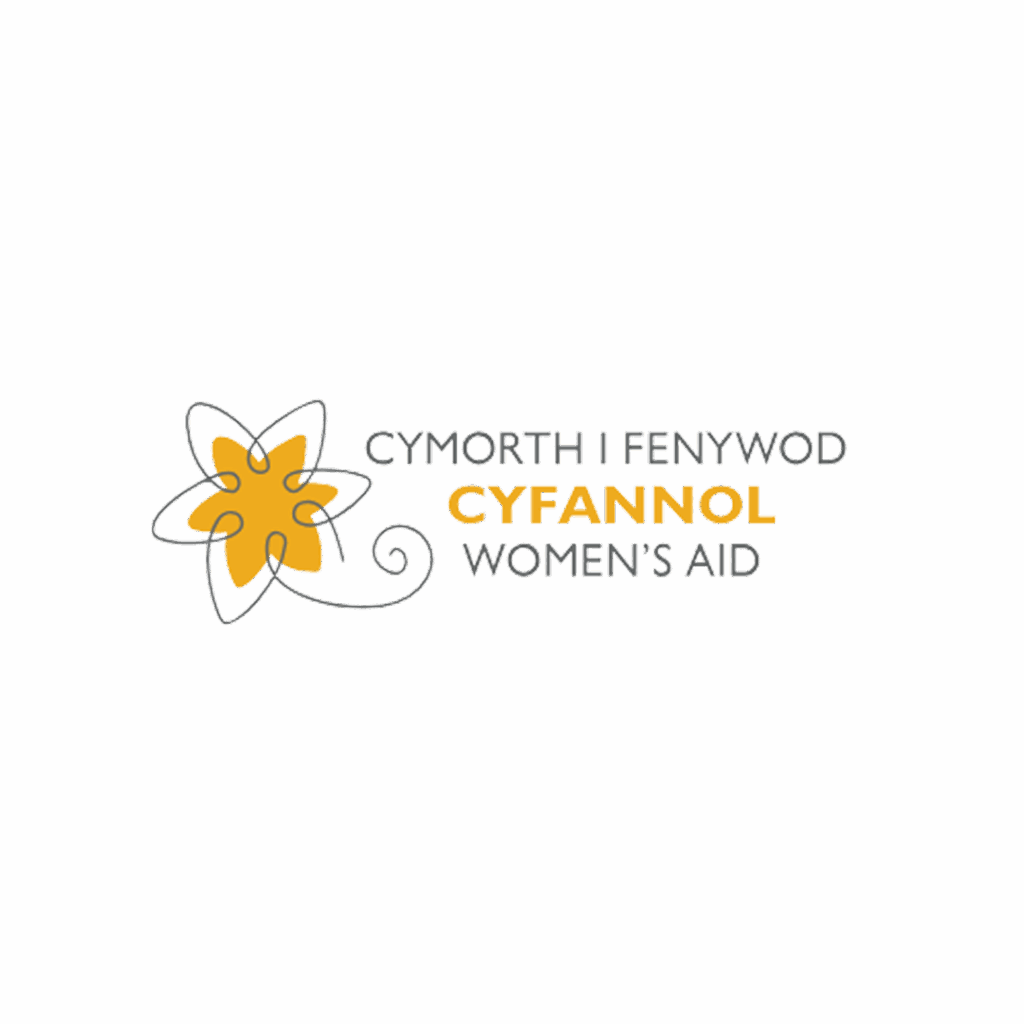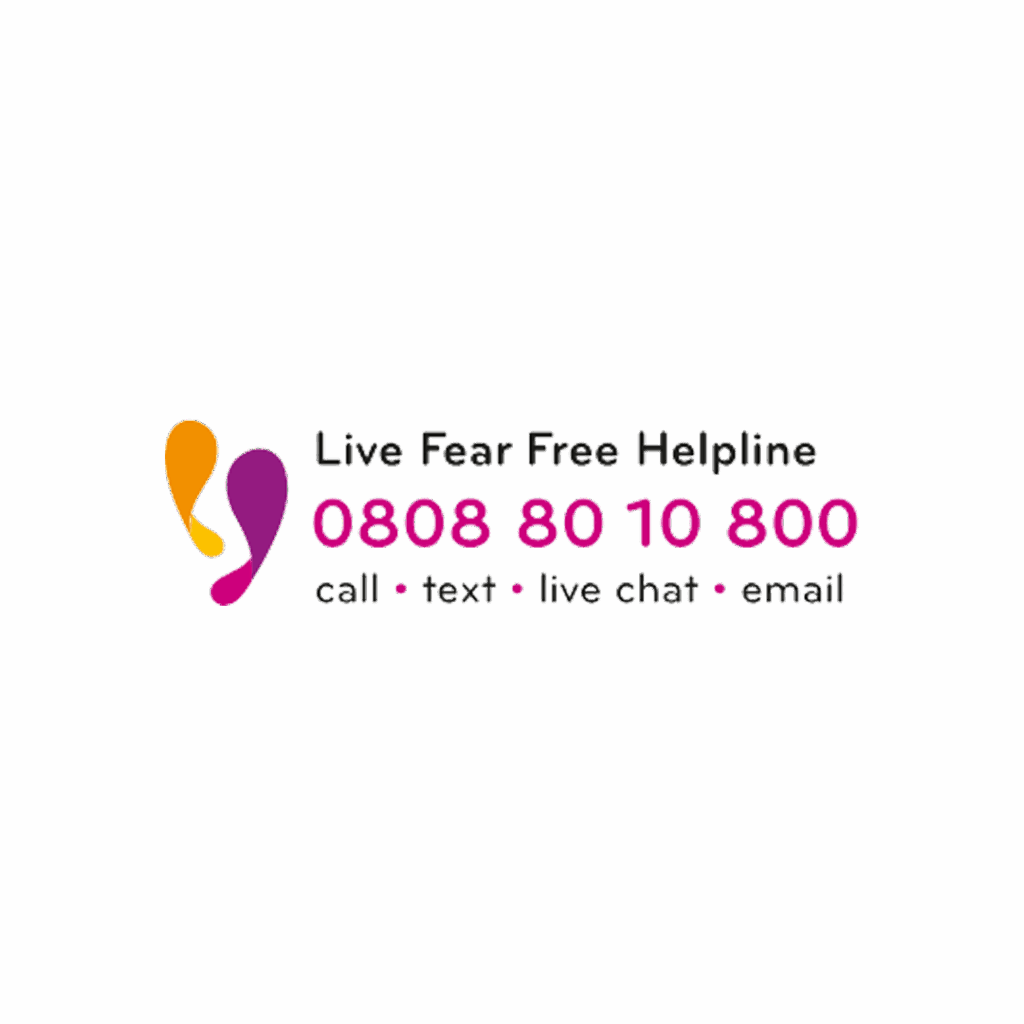Safeguarding at Bron Afon
The Bron Afon Safeguarding page highlights what the Safeguarding Team do, what types of abuse there are, how to report concerns and how we can help.
What is Safeguarding?
Safeguarding involves protecting children, young people, and vulnerable adults from abuse and neglect. This includes physical, sexual, emotional, and financial abuse, as well as discrimination, modern slavery, and self-neglect.

When should I raise safeguarding concerns?
Abuse and neglect can sometimes be hard to spot, but here are some warning signs to look out for:
• Poor property conditions (e.g., inadequate heating or lighting)
• Hoarding or cluttered living spaces
• Lack of essential utilities (e.g., no gas or electricity)
• Unauthorised persons staying in the property
• Physical signs like cuts, bruises, or unexplained injuries
• Significant changes in physical condition (e.g., weight loss, appearing over-medicated)
• Poor hygiene or clothing in poor condition
• Changes in the level of support or care required
• Unexplained spending or financial concerns
• Experiencing harassment or feeling unsafe in the home
If there is a child or adult in immediate danger or a crime has been committed, it’s important that you phone the police on 999 as an emergency. Alternatively, you can report your concerns directly to your local authority’s Safeguarding Adult or Child Team:
What will we do if you raise safeguarding concerns about others?
We will help you report your concerns to the right agency, such as the local council, the NHS, or the police. Sometimes, we may need to share your concerns with other organisations so they can look into the issue further. If needed, we will also carry out our own investigation. We’ll do our best to keep you updated on the outcome whenever possible.
What will we do if you raise safeguarding concerns about yourself?
We will support you in safeguarding yourself and discuss whether you want us to raise a safeguarding concern on your behalf.
If necessary, we may raise a safeguarding concern with your local council to ensure your safety and the safety of others.
We will assist you in coping with the effects of any abuse or neglect you may have experienced or witnessed, and we will connect you with specialist support organisations.
Reporting a Safeguarding Issue
If there is a child or adult in immediate danger or a crime has been committed it's really important you phone Police 999
You can report your concerns directly to your local authority safeguarding an adult or child team here.
Torfaen Tel: 01495 762200 Email: [email protected]
After 5pm and on weekends and bank holidays please contact the South East Wales Emergency Duty Team on 0800 328 4432. You can also alert us to your concerns by contacting a member of our Safeguarding Team [email protected] or by using the contact form below.
Reporting Safeguarding
Please use the form below to report any safeguarding issue.
Safeguarding
Frequently Asked Questions
A child is classed as a person under the age of 18 years.
Physical Abuse
Physical abuse is when someone hurts a child or young person on purpose.
Examples include,
- hitting, slapping, shaking or throwing
- burning or scalding
- drowning, suffocating or choking
- pushing or kicking
- inappropriate restraint or false imprisonment
- using physical force to discipline
- misusing medication
- fabricating or inducing an illness or ill health
Possible Signs/Symptoms:-
- unexplained recurrent injuries, marks or burns
- covering injuries with clothing even in hot weather
- fear of physical contact and shrinking back if touched
- untreated medical injuries
- unexplained weight loss
Sexual abuse
Sexual abuse is when a child is forced or persuaded to take part in sexual activities.
The abuse may be committed by adult men and women, or by other children.
- causing or inciting a child to watch or engage in sexual activities
- encouraging a child to behave in sexually inappropriate ways
- involving a child in looking at sexual images or videos
- involving a child in the production of sexual images or videos
- grooming a child in preparation for abuse
Possible Signs/Symptoms:-
- depression, self-mutilation, suicide attempts, running away, overdoses or anorexia
- personality changes such as becoming isolated or withdrawn
- medical problems - STIs
- change in behaviour
Emotional Abuse
The ongoing emotional maltreatment of a child.
Examples include;
being made to feel inadequate, worthless or unloved
being unfairly blamed
being bullied, including over the internet (cyber-bullying)
being made to feel frightened or in danger
witnessing the abuse of others
Possible Signs/Symptoms:-
- reduced physical, mental and emotional development
- low self esteem and lack of self confidence
- inappropriate response to pain
- self harm
- struggle to control emotions eg extreme anger, agitation, or being very tearful
Neglect
Neglect is when a child or young person’s basic needs are persistently not being met by their parent or guardian.
These basic needs include;
- adequate food, clothing and shelter
- protection from physical and emotional harm or danger
- adequate supervision (including not being left at home alone)
- access to appropriate medical care including dental treatment
Possible Signs/Symptoms:-
- constant hunger or tiredness
- poor personal hygiene
- poor condition and cleanliness of clothing
- untreated medical problems
- no social relationships
Financial Abuse
Financial abuse is any theft or misuse of a persons money property or resources by a person in a position of trust
Types of financial abuse,
- Child workers without pay.
- Childs possessions sold or missing.
- Misuse of allowances/ grants for children’s care
- EMA taken by family without child’s consent.
Indicators of financial abuse involving a child
- Not meeting their needs for care and support which are supported through direct payments
- Lack of amenities in the home such as TV, clothing
- Complaints that personal property is missing
Child Abuse is anything a person does that is meant to cause harm to someone under the age of 18.
It's not always easy to know what abuse is or what to do about it.
Find out about the different types and how to get support from Childline.
You can talk to Childline about anything. No problem is too big or too small.
Call them free on 0800 1111 or get in touch online. However you choose to contact them, you're in control. It’s confidential and you don’t have to give your name if you don’t want to.
If you or someone you know is in immediate danger then you should always dial 999 and explain what is happening and they will help you.
If you are a child or young person who is:
- Unhappy about life
- Worried about a friend or someone else
You need to talk to someone you know and trust.
If you would like to get help and advice from someone who doesn’t know you and your situation go to the ChildLine website or you can call them free on 0800 1111.
You can talk to ChildLine about anything. No problem is too big or too small.
However you choose to contact them, you're in control. It’s confidential and you don’t have to give your name if you don’t want to.
They’ll support you. Guide you. Help you make decisions that are right for you.
Their tips and techniques, ideas and inspiration, can help you feel more in control. And you can access them in your own time, at your own pace!
Childline website has advice on:
Bullying, abuse, safety, law, your body, your feelings, friends, home & family, relationships, sex, school and college work and much, much more.
Adult at risk
An adult at risk is classed as a person aged over 18 years of age. Who is experiencing or is at risk of abuse or neglect and has needs for care and support (whether or not the authority is meeting any of those needs) and as a result of those needs is unable to protect themselves against abuse or neglect or the risk of it (Social Services Wellbeing Act 2014)
An adult with care and support needs is a person over 18 years of age who: • has a learning disability;• has mental health needs including dementia or personality disorder;• has a long term illness;• has a physical disability;• misuses alcohol or drugs;• is elderly and frail due to ill health, disability or cognitive impairment; and• requires extra help to manage their lives and to be independent
Discrimination
Exists when values, beliefs or culture result in a misuse of power that denies mainstream opportunities to some groups or individuals. It includes discrimination on the basis of race, gender, age, sexuality, disability or religion.
Possible Signs/Symptoms:-
- Name-calling
- verbal or physical abuse in public places or residential settings
- hate mail
- cyber-bullying
- bogus calls
- criminal damage to property
- target of burglary
Domestic Abuse
An incident of controlling, coercive or threatening behaviour, violence or abuse between people that are or have been intimate partners or family members. This is regardless of gender or sexuality.
Possible Signs/Symptoms:-
- Verbal abuse constantly aimed at another
- shouting and threats with angry gestures
- physical violence
- blocking or monitoring communications
- isolation from friends and/or family
- Police call outs
- noise nuisance complaints
- neighbours reporting concerns
Emotional or Psychological
Is as damaging as physical abuse, and can severely impact someone’s mental health. It’s often used as a way to maintain power and control over someone. Emotional abuse may be accompanied by other kinds of abuse but is serious enough on its own to be a concern.
Possible Signs/Symptoms:-
- humiliating
- blaming
- controlling
- intimidating or harassing
- anxiety
- nervous behaviour
- low self-esteem or lack self-assurance
- struggle to control emotions - tearfulness, agitation,
- unexplained paranoia
- gaslighting
- isolation
Financial or Economical
A way of controlling a person’s ability to acquire, use and maintain their own money and financial resources.
Possible Signs/Symptoms:-
- existing or increase in rent arrears
- limiting access to bank accounts or cards
- sabotaging future earnings - e.g. hiding car keys and making someone late for work
- unusual financial interest by family or carer
- abuse of joint/shared accounts
- personal items missing from the home
Modern Day Slavery
Encompasses slavery, servitude, forced and compulsory labour and human trafficking. Traffickers and slave drivers coerce, deceive and force individuals against their will into a life of abuse, servitude and inhumane treatment.
Possible Signs/Symptoms:-
- unusually fearful or anxious behaviour
- seems under the control of others
- has few or no personal belongings
- has no control of own money
- over-crowded, cramped living conditions,
- living and working at the same place
- a number of unrelated (or unnamed on tenancy) people living at one address
Organisational or Institutional
Where an institution is not meeting the care and support needs of others e.g. Care Home, Police, Local Authority, Social Services.
Possible Signs/Symptoms:-
- lack of flexibility and choice for people using the service
- few social, recreational and educational activities
- inadequate staffing levels
- poor standards of care
- lack of adequate procedures
- poor record-keeping
- missing documents and individual care plans
- absence of visitors
- lack of management overview and support
Physical
Actual or likely physical injury to a person or failure to prevent physical injury or suffering to a person e.g. hitting, burning, shaking, etc.
Possible Signs/Symptoms:-
- unexplained minor injuries at different stages of healing
- hitting, slapping, pushing, pinching, shaking, scalding
- untreated medical problems
- unexplained weight loss or gain
- being denied food, water or medications
- inappropriate or unlawful use of restraint
- unexplained falls
- unauthorised restraint
- restricting/limiting movement
Sexual
Any behaviour thought to be of a sexual nature which is unwanted and takes place without consent. Sexual violence and abuse can be physical, psychological, verbal or online.
Possible Signs/Symptoms:-
- indecent exposure
- sexual harassment
- inappropriate looking or touching
- sexual teasing or innuendo
- sexual photography
- being forced to watch pornography or sexual acts
- being forced or pressured to take part in sexual acts
- rape
Neglect/Acts of Omission
Neglect is the persistent failure to meet the basic physical and/or psychological needs of a child or adult, which is likely to result in damage to the person’s health and/or development. It can include ignoring medical, emotional or physical care needs, failure to provide access to
appropriate health, care and support or educational services. It can also involve withholding the necessities of life, such as medication, adequate nutrition and heating.
Possible Signs/Symptoms:-
- ignoring medical or physical care needs
- failure to provide access to appropriate health, social care or educational services
- the withholding of the necessities of life such as medication, adequate nutrition, and heating
- poor quality living environments
- poor environment – dirty or unhygienic
- poor personal health and hygiene
- pressure sores or ulcers
- unexplained weight loss, malnutrition or dehydrationu
- untreated injuries and medical problems
- inconsistent or reluctant contact with medical and social care organisations
- accumulation of untaken medication, or refusal to take medications
- uncharacteristic failure to engage in social interaction
- inappropriate or inadequate clothing for the environment
- poor heating
Self-Neglect
Self-Neglect is any failure of an adult to take care of themselves that causes, or is reasonably likely to cause serious physical, mental or emotional harm or substantial damage to or loss of assets. When a person being unable, or unwilling, to care for their own essential
needs. It can cover a wide range of behaviour including neglecting personal hygiene, health or surroundings, refusal of necessary support or obsessive hoarding.
Possible Signs/Symptoms:-
hoarding
poor personal health and hygiene
unkempt appearance
lack of essential food, clothing or shelter
unexplained weight loss, malnutrition or dehydration
living in unsanitary or poor conditions
neglecting household maintenance
collecting a large number of animals in inappropriate conditions
non-compliance with health or care services
accumulation of untaken medication, or refusal to take medications
Domestic abuse is an incident or pattern of incidents of controlling, coercive, threatening, degrading or violent behaviour, including sexual violence. In most cases, this is perpetrated by a partner or ex-partner, but it can also be inflicted by a family member or carer.
Domestic abuse can happen to anyone. It can occur within the home or elsewhere, and often continues after the relationship between the survivor and perpetrator is over.
If behaviour results in feelings of fear, alarm or distress, it is abuse. You have a right to feel safe and to live fear free.
You are welcome to share details of the issue but you must provide your name. If you would like us to contact you, please include your preferred contact method (phone or email), along with a suitable day and time. We will only contact you to discuss the safeguarding issue you’ve raised, and all information will be handled with the strictest confidence.



